Pipes provide our homes with water that is needed for so many daily needs and chores! Washing dishes, laundering, taking shower or bath, cleaning our home – everything requires water. And surely, your pipes must be working properly in order to keep your household running.
This is why, when cold days arrive, most of the homeowners become worried about their piping system since it gets more vulnerable under the impact of frost and low temperatures in general. And even though it is more likely that old homes could suffer from pipes issues in winter, new buildings can also be threatened by the frost.
This is why today we will tell you how long it usually takes for the pipes to freeze and burst, both indoors and outdoors. And also, you will learn at what temperature your pipes might freeze and burst.
Like this, you will be able to prevent a catastrophe and protect your water system so that you will not have to call a plumber for help.
How Long Does It Take For Pipes to Freeze And Burst?
When water gets frozen inside of your pipes, in the majority of situations it will end up with the pipe (or pipes) bursting. Of course, such an accident will leave you with a nasty mess to clean up, as well as damaged pipes that have to bi fixed which means spending extra money on calling a plumber and paying for his work.
So no wonder that many homeowners keep on wondering whether it is possible to predict when your pipes will freeze and burst. If you knew that, you could at least get yourself ready for the upcoming test!
However, there is no definite period of time known that it takes for pipes to freeze or especially burst. In general, a very approximate time frame that is needed for your pipes to freeze and then burst is from four to six hours.
But that is only if there is no access to a heating source, and if the temperature is lower than twenty degrees Fahrenheit.
In addition, several factors play an important role in this happening, for example, the type and the method of insulation used to protect your pipes, and the place in your home where the pipes are located.
The ambient temperature is also crucial, of course. In extremely cold weather, it will not take your pipes too long to first freeze and then burst!
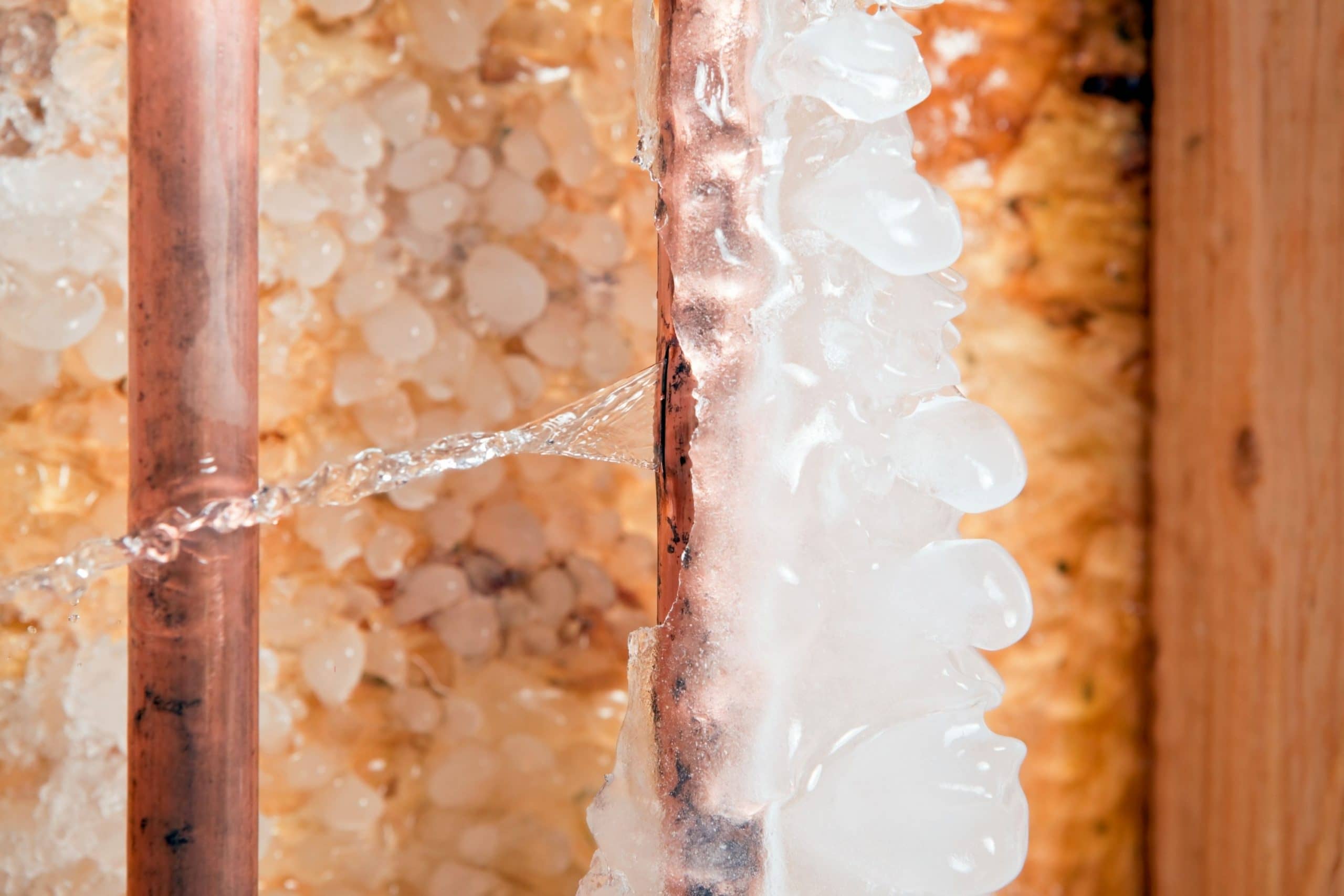
On the other hand, speaking of approximate time frames, we can say that, if your pipes are well insulated, you could expect them to freeze after around six hours of constant exposure to low temperatures (low meaning that it is colder than twenty degrees Fahrenheit).
For the poorly insulated water lines, this time frame will be reduced to three hours, when the temperature outdoors reaches twenty degrees or lower, and if there is no access to the heating source.
[table id=168 /]
Even the area where your house is situated also matters. For instance, houses built in the Northern areas are usually constructed so that the pipes were initially protected from cold and thus prevented from freezing, especially in the areas where the temperature tends to fall far below freezing point in winter.
On the contrary, in Southern regions, freezing weather is way less common, this is why the majority of houses are not built in anticipation of very cold weather in these areas.
That makes houses in the South more vulnerable simply because their plumbing and insulation installations are not intended to withstand such extreme weather conditions and low temperatures. This is also the reason why in the Southern areas, a freak cold snap can result in frozen pipes!
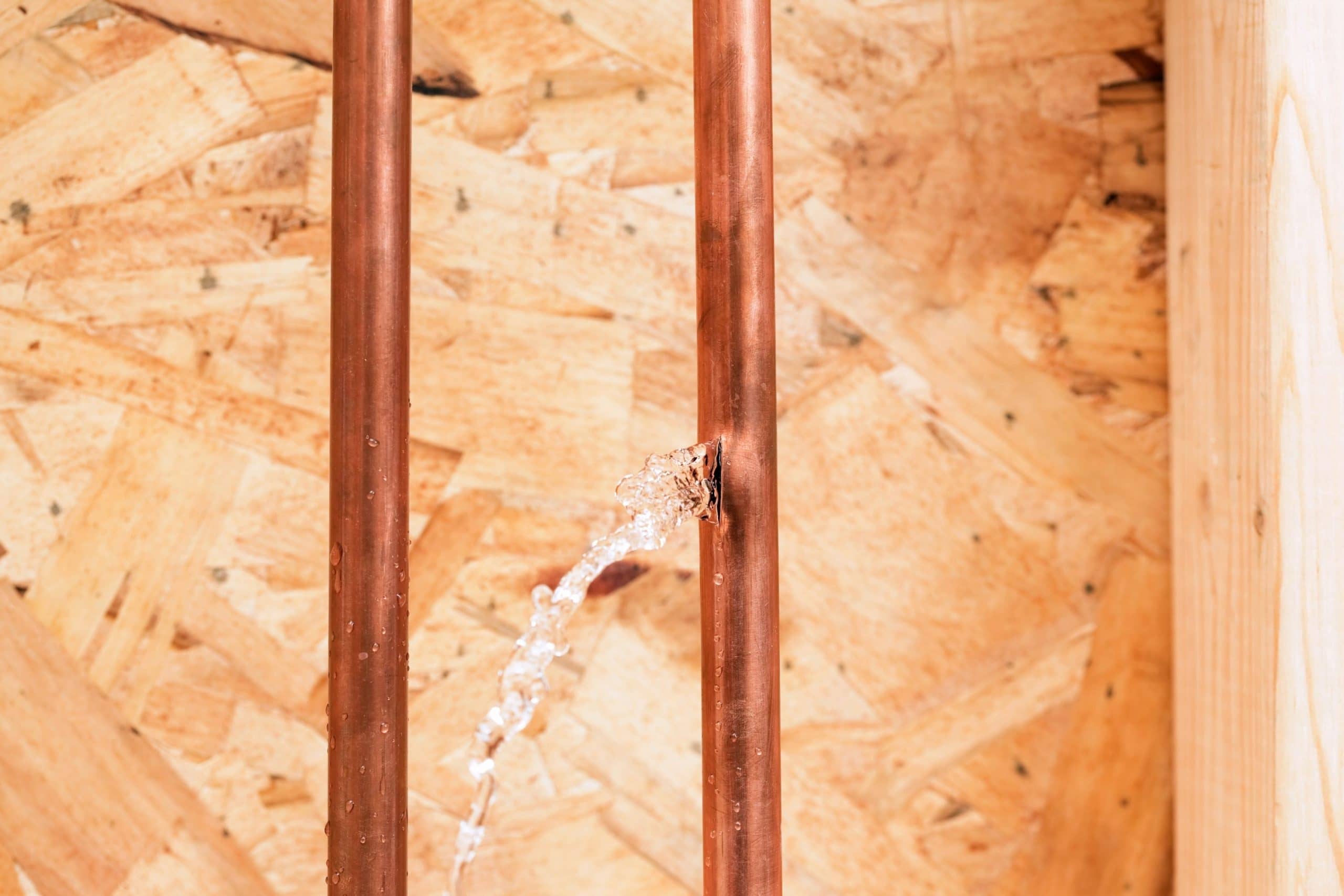
How Long Does It Take For Pipes to Freeze And Burst Inside a Home?
It may seem to you that the pipes that are located indoors are way less predisposed to freezing and thus bursting in winter. And also, it may seem to you that the water lines that are located in your house will take more time to freeze.
Well, as for the latter statement, it makes sense indeed. See, if we are talking about the indoor pipes that are properly and thoroughly insulated with a high-quality insulation material, it may take around six or even more hours for them to freeze and then burst.
In addition, it plays a big role that inside of the house, pipes have a constant access to heat which delays the collapse significantly.
On the other hand, if we are talking about the pipes that are located outdoors where there is no access to heating objects like radiators, etc, the freezing time will be significantly shorter.
The freezing process may even start long before the water inside of the pipes reaches twenty degrees which is a crucial point for the water lines after which they start freezing gradually.
This is why always make sure that your indoor water lines are properly insulated with quality materials and the space they are located in is well heated. Like this, you will not only avoid bursting, but you will also prevent freezing of your home’s water lines.
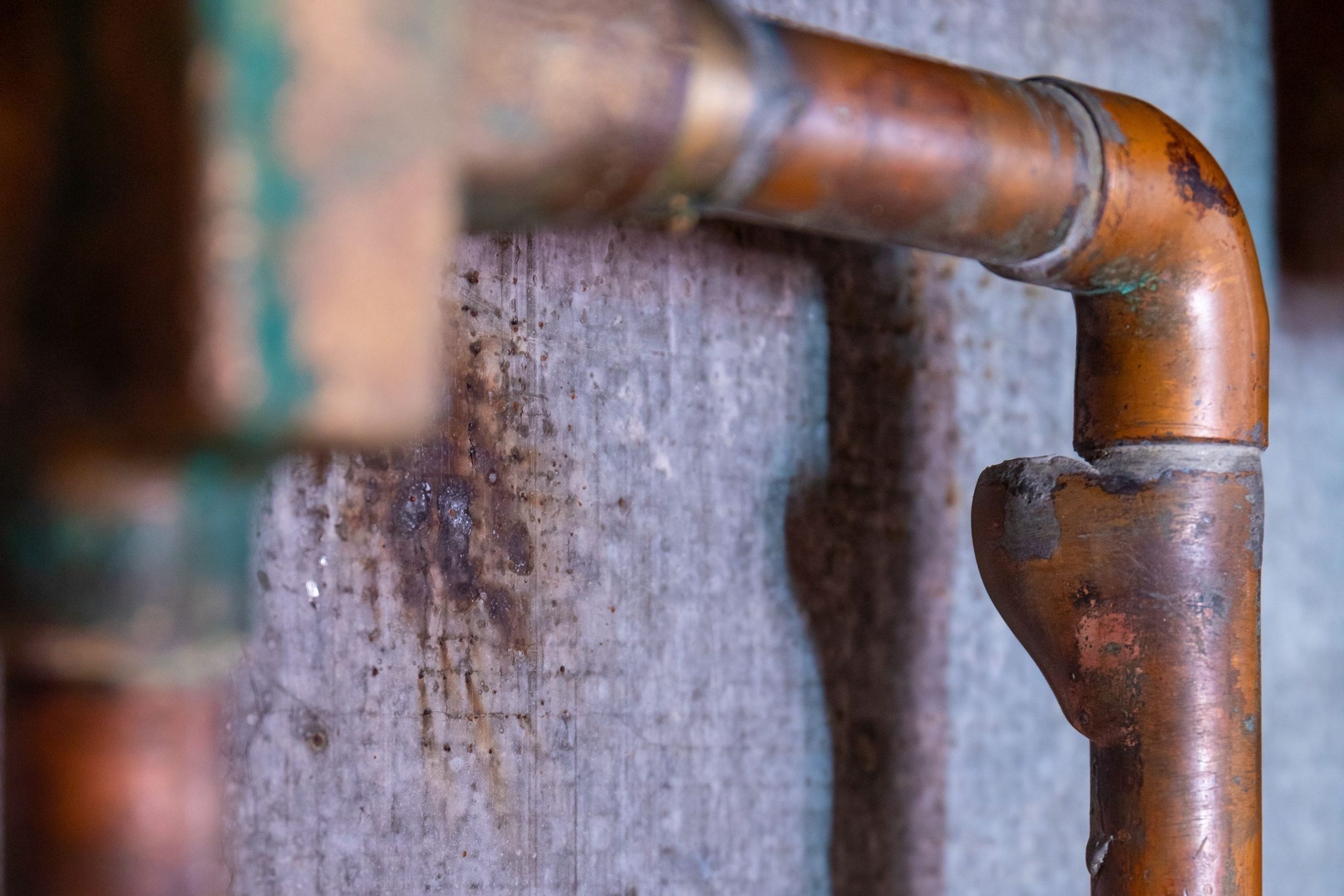
Related: How to Unfreeze Pipes In a Mobile Home
How Long Does It Take For the Outside Pipes to Freeze And Burst?
As for the pipes that are located outdoors, they usually tend to freeze and burst faster than the water lines located inside of the house. This is because the outdoor pipes are exposed to cold for a more extended period of time and more intensively, which means that they start cooling down faster.
This is why, if you live in an area with severe winters and frosts, be aware that your outdoor pipes may start freezing at 20 degrees Fahrenheit already. And as a result, you should expect them to freeze and burst in three to four hours after the temperature reaches that level.
And of course, if the winter temperatures tend to drop far below freezing in the area where you live, the pipe collapse will approach even sooner.
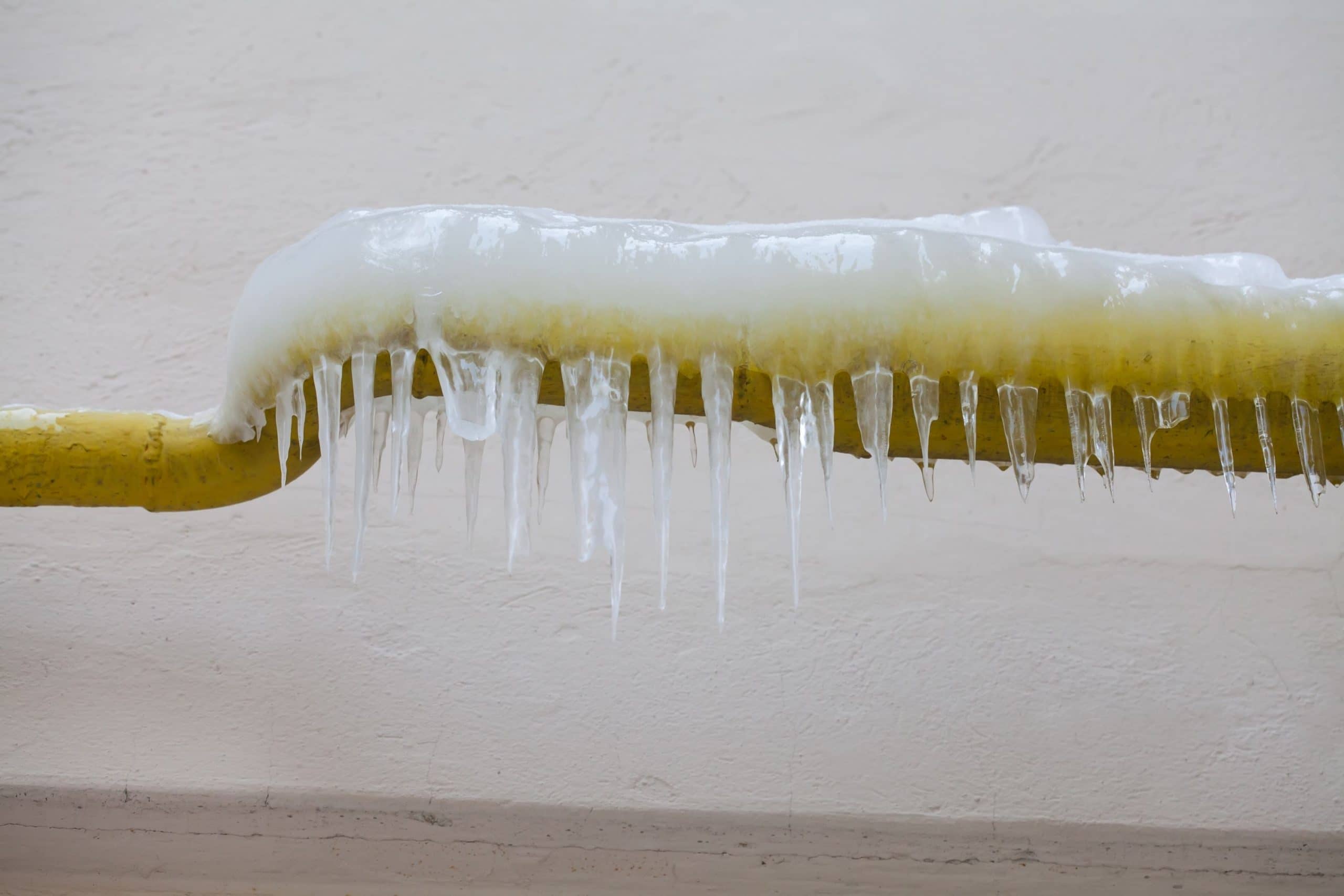
Related: How to Prepare Your Home for Extreme Weather Events?
How Long Does It Take For Sprinkler Pipes to Freeze
Sprinkler pipes have way more chances to freeze in winter since they are constantly exposed to the cold. This is why you need to remember that your sprinkler system will start freezing slowly once the outside temperature reaches thirty two degrees Fahrenheit.
So, as you can see, well insulated pipes will start freezing at approximately the same temperature rate of twenty degrees Fahrenheit.
If your water lines are poorly insulated, this period of time will be shortened to approximately four hours.
And of course, you need to remember that in colder areas, this time frame will be significantly reduced for both insulated and non-insulated water lines.
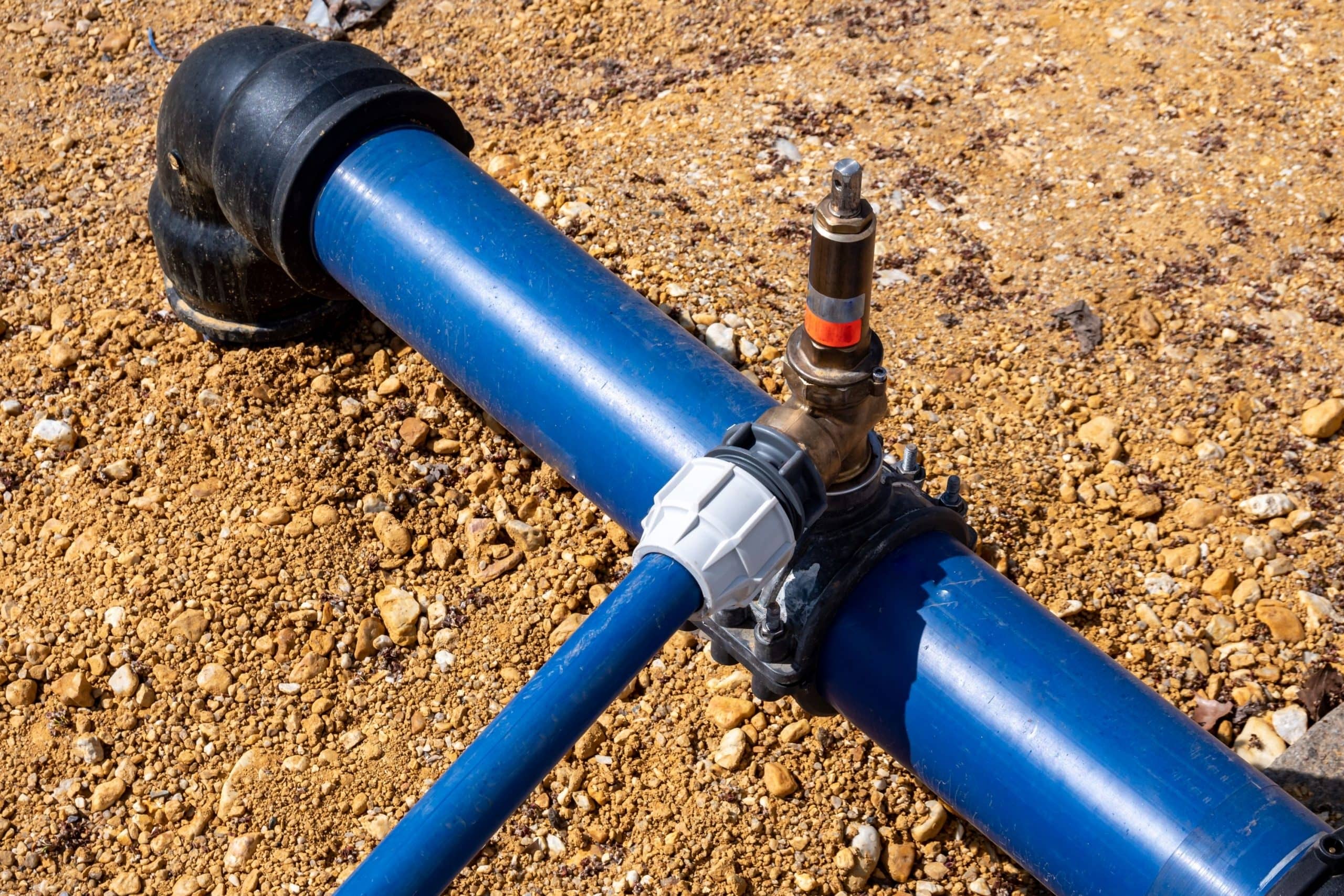
How Cold Does It Have to Be For the Pipes to Freeze?
Pipe freeze temperature influences the time period needed for your water lines to get frozen and collapse. If you know that time frame at least approximately, you will be able to tell when to expect the burst and thus you will be ready for the possible damage.
In general, pipes can freeze and burst when the outdoor temperature reaches the rate of twenty degrees fahrenheit. Of course, indoor water lines will last somewhat longer if they are properly insulated, and also because it is warmer in the house than it is outdoors. In addition, even the outdoor pipes will freeze slower if they have proper insulation made of high quality materials.
However, certain types of pipes will start freezing even faster! For instance, your lawn sprinkler system pipes.
These ones will begin to approach their collapse point once the outdoor temperature gets to the point of thirty two degrees Fahrenheit.
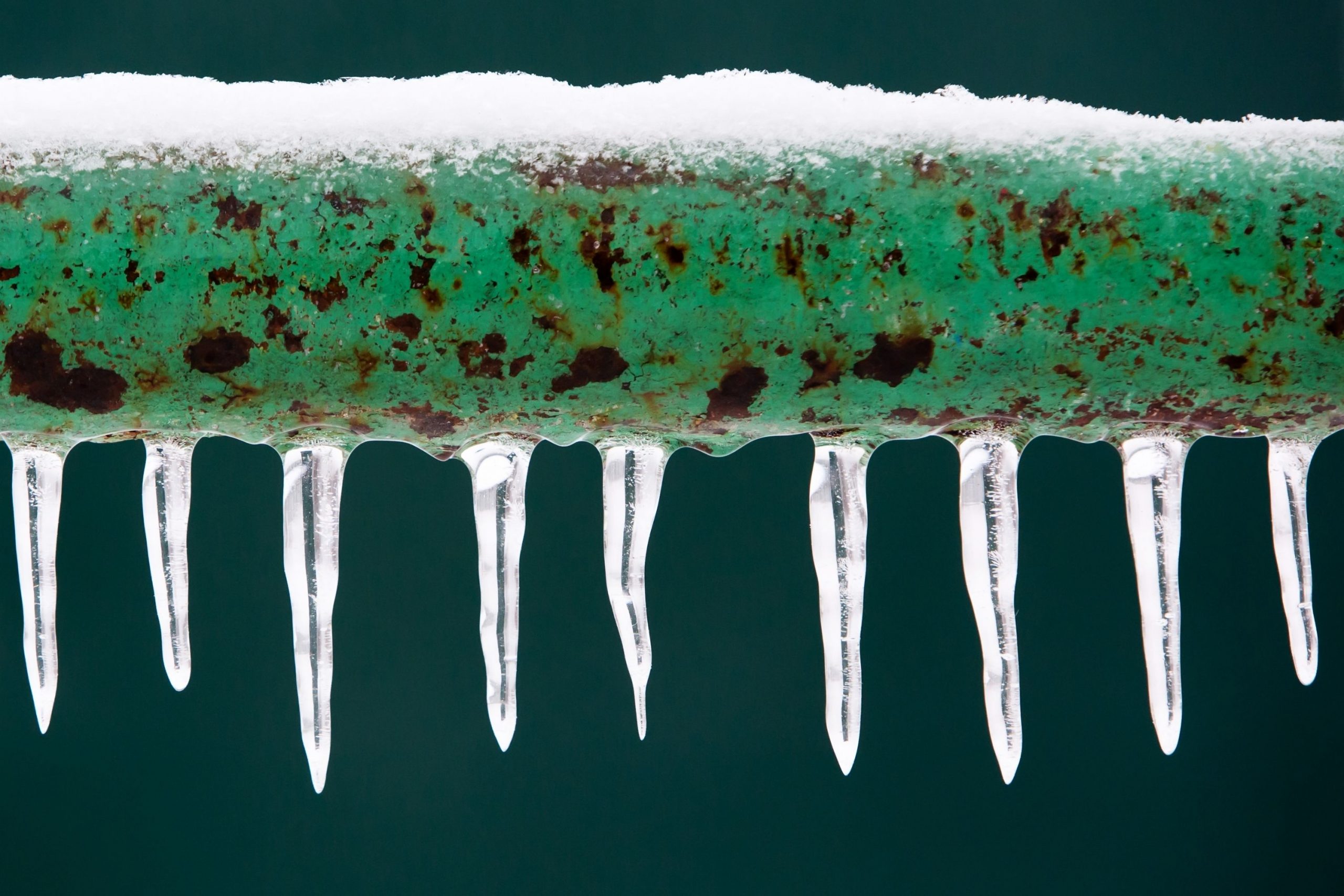
At What Temperature Do Pipes Burst?
You might think that pipes freeze at one temperature and burst at another, but this is not quite correct. See, in most cases, your water pipes will start freezing when the temperature is within the range of twenty to thirty two degrees Fahrenheit.
And since they need around six hours until they burst, this temperature rate can be considered the one at which your water lines will collapse.
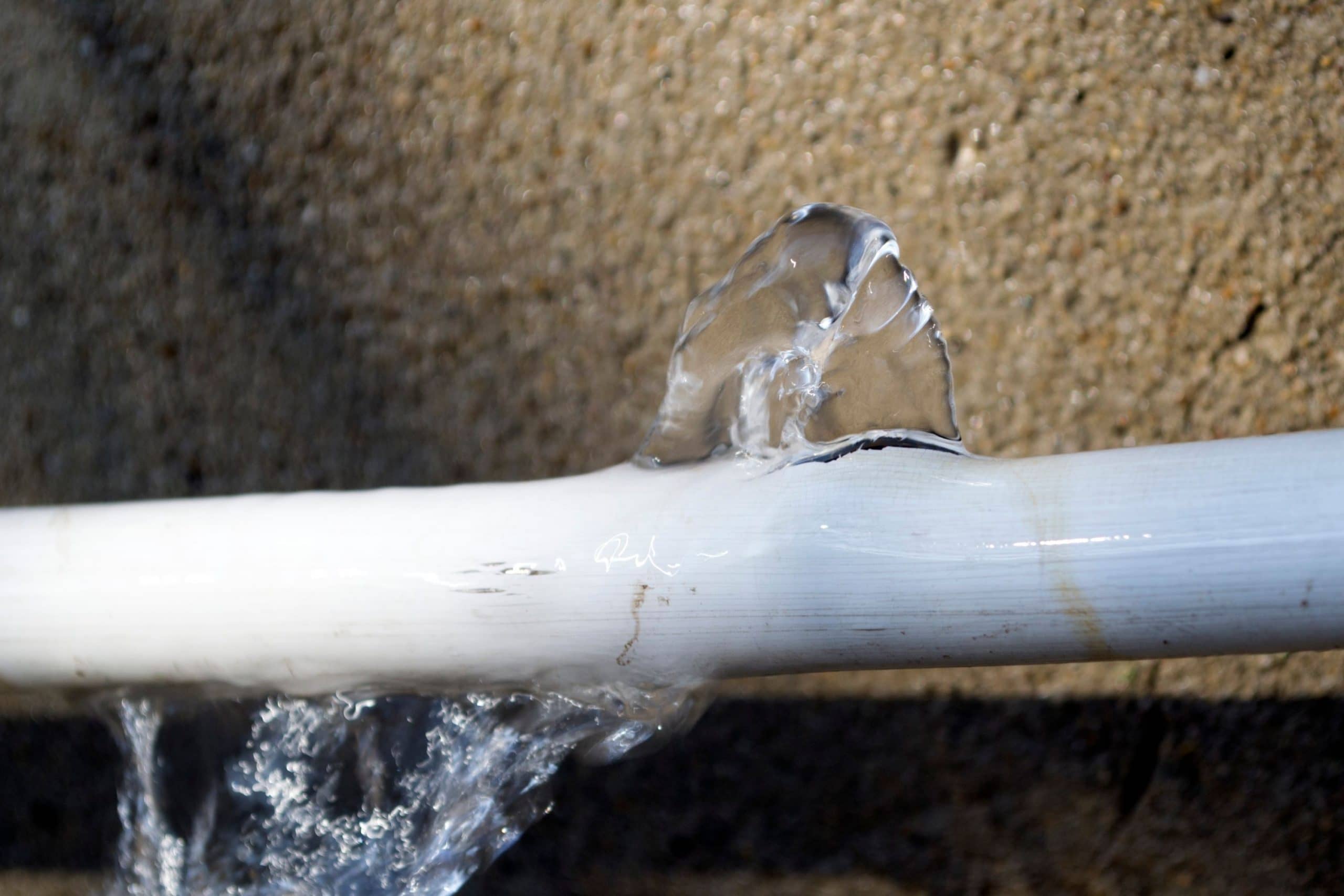
What to Do When Frozen Pipes Burst?
So what shall you do if your pipes (or one of them) burst because of the cold? If this happens, you need to take a few quite easy steps in order to prevent more damage and stop the flood.
- Shut off your water supply
- Call the insurance company
- Contact a professional plumber
- Remove water right away
So first of all, the water supply must be shut off. To be able to do this, you need to always be aware of where your main water valve is located. So once your pipes collapse, shut that valve off right away.
In case you live in an apartment complex where you can’t shut the water supply on your own, call your landlord or building manager immediately!
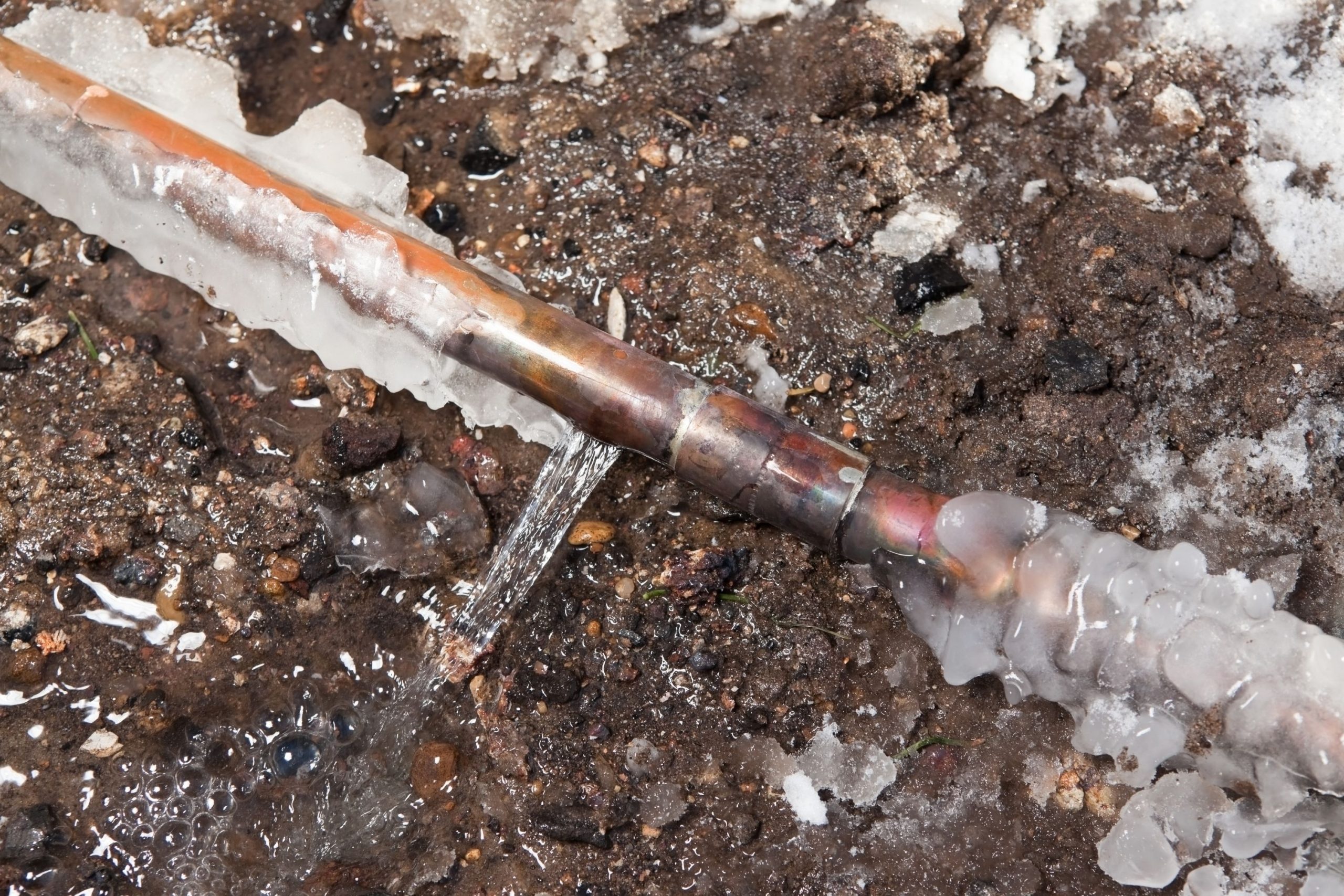
The second thep is to call your homeowner’s insurance company since such accidents are usually covered under the homeowner’s insurance policy. Calling a plumber is also important.
You should always have phone numbers of a few companies that provide 24-hours services in case your pipes collapse in the middle of the night!
Finally, remember that you will have to remove the water right away. It is important to clean it up in order to prevent mildew and mold buildup that may develop if you leave water as it is after the pipes have burst.
To do this, you will need towels, buckets, mops, and a wet/dry vacuum.
We do not recommend you wait for the plumber to do this for you, by the way! The longer you wait with the water around, the more likely you will have mold or severe water damage!
How Do I Prevent My Water Pipes From Bursting?
Preventing is always faster and cheaper than fixing. This is why our advice is to do all you can to prevent your pipes from freezing and further bursting once colds arrive. To complete this task successfully, you will have to take several easy steps.
- Avoid extreme temperatures. It must be no lower than 55 F inside of the house. If you are leaving for a long time, shut off the water valve.
- Don’t leave still water in the pipes. When it is getting cold outside, let the water drip from the faucet. This will prevent it from freezing even though dripping might sound irritating.
- Insulate your pipes paying additional attention to those in cold areas of your house, such as a garage, attics, or basements.
- Use a heated reflector light or expanding foam to keep insulated pipes warm.
Like this, you will be able to keep your pipes protected from cold better and thus you will be sure they will not burst suddenly when nobody expects that!
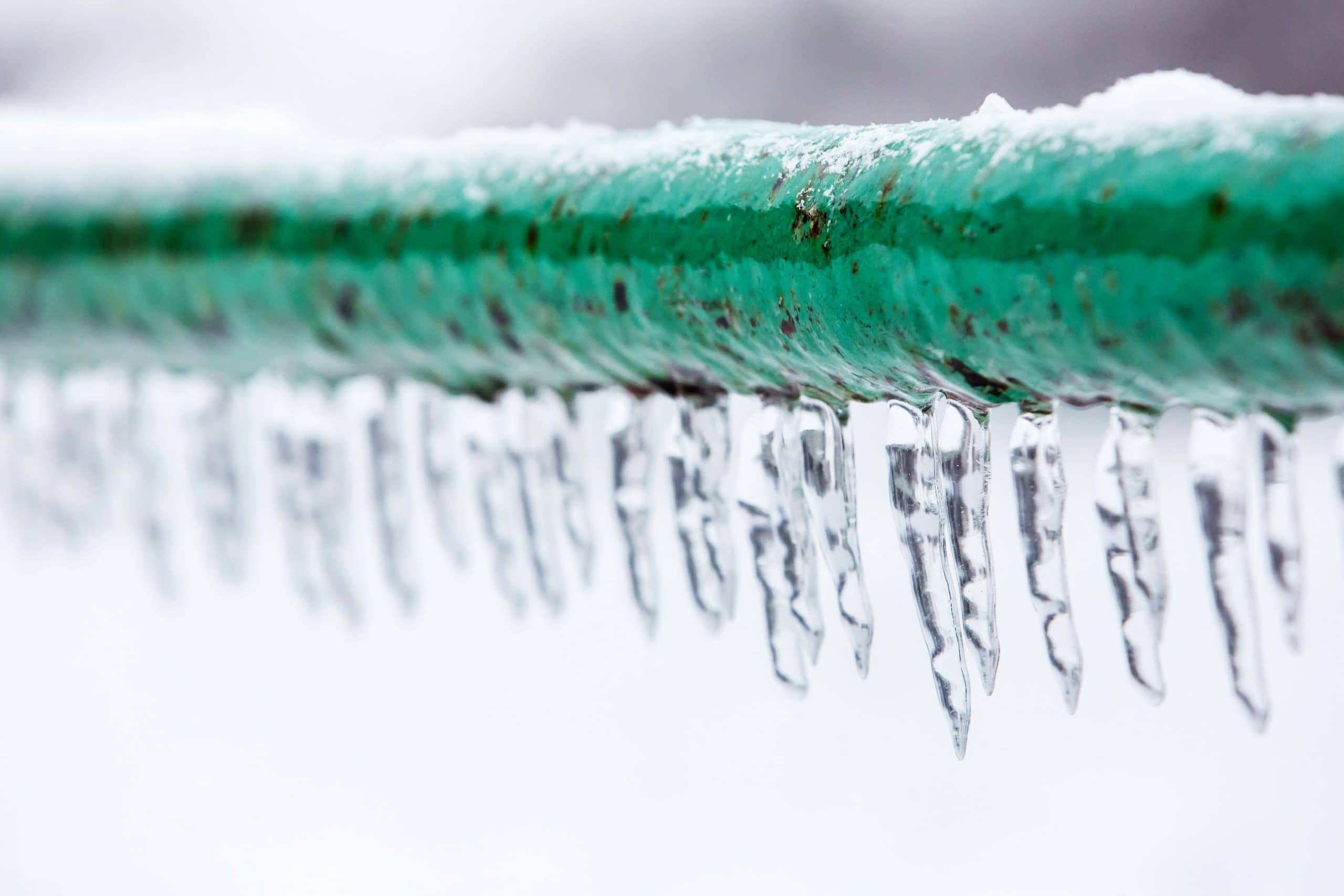
What If My Pipes Froze? How Do I Thaw Them?
The reasons may be different, but imagine your pipes are frozen. What shall you do now? What actions must be taken to prevent an even worse scenario – bursting? The very first thing you need to do is to thaw them before the water line collapses.
To know exactly what part of the pipe to thaw, you need to detect first what part of it is frozen. That might be tricky since most of our pipes are hidden behind the walls or in the crawl spaces.
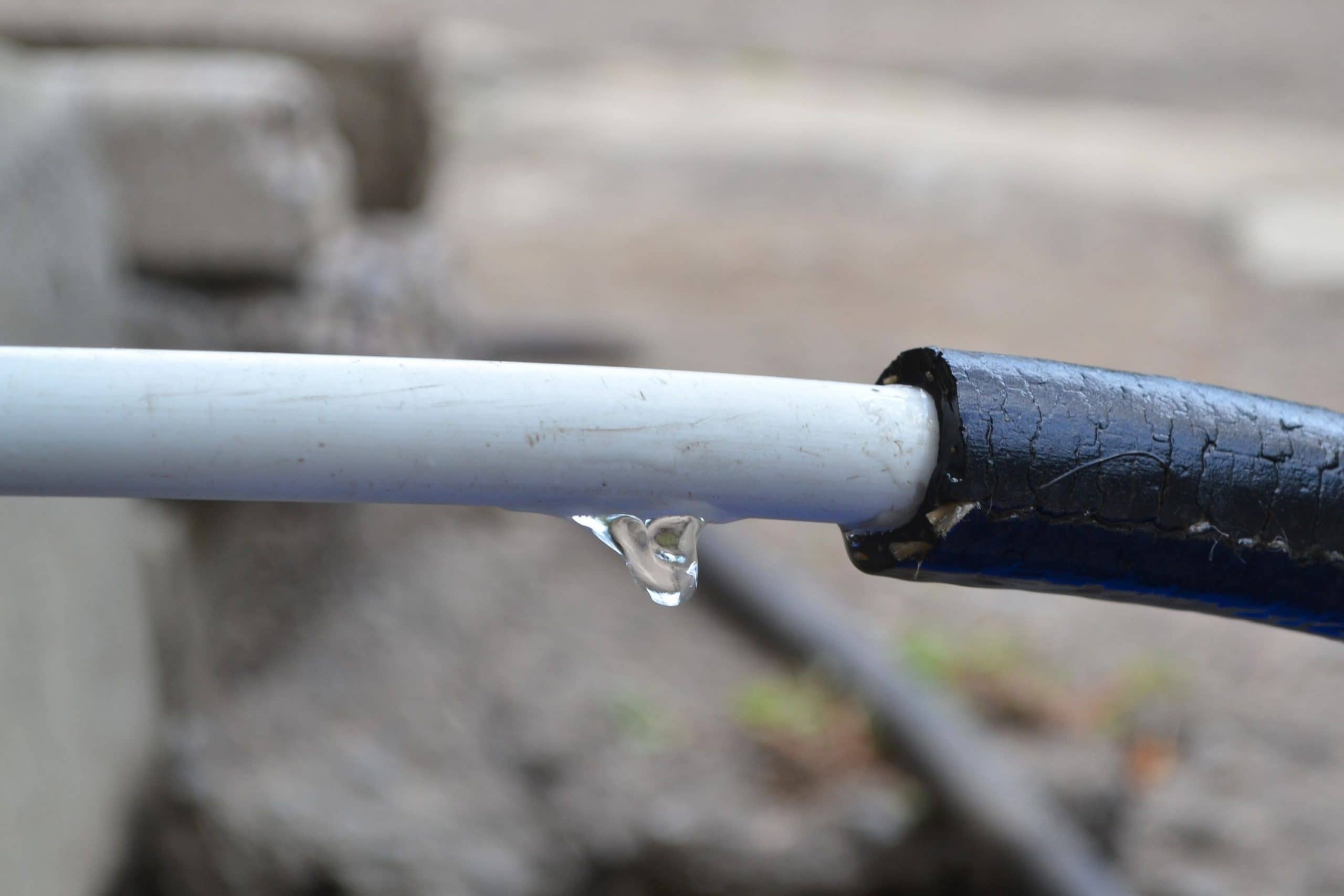
So we recommend you call a professional plumber (unless you are able to find the damaged area yourself).
And once the damaged part of the pipe is spotted, use a heating pad, a warm washcloth, a hairdryer, or a space heater to defrost it. But never pour boiling water onto the frozen pipe! It may seem to be the fastest way of thawing it, but in fact, if you thaw it too quickly, you will simply break it!
So this is the complete guide for you on what to do to prevent your pipes from freezing and what actions to take in order to thaw them. And since now you know how cold it must be for the pipes to freeze and burst, we are sure you will do your best to avoid that happening.
[wp-faq-schema title=”Frequently Asked Questions”]
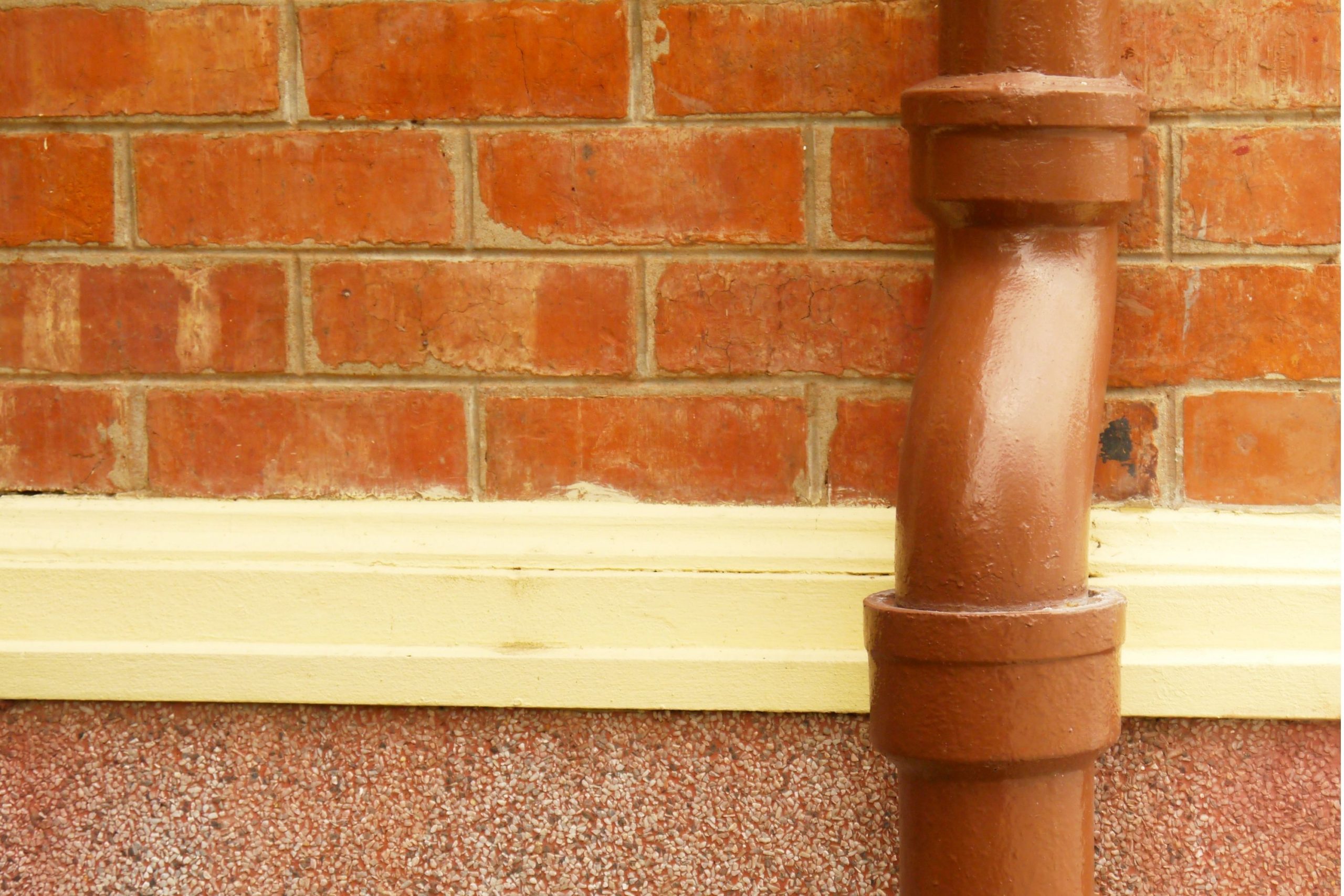
At what temperature do pipes freeze without heat? In our house, we have pipes outdoors that are exposed to frost during the winter since the building they are in is not heated. Does anyone know how long they can last under such conditions?
Hey there! I guess that they might last for a few hours without heat. But I don’t know how cold it is in general in your area. That’s because if you have severe winters with temperatures being lower than freezing, then your pipes will collapse much faster.
I heard that water line pipes will break at 32 F. But can pipes freeze at 27 degrees already?
Well, as far as I know, pipes can freeze at 20 F already. It’s a sprinkler system that freezes at 32.